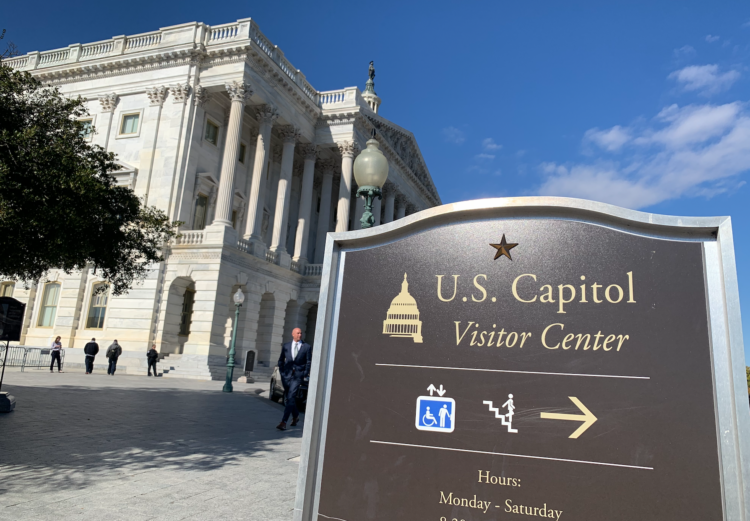
The Department of Energy cannot build an interim storage facility for spent nuclear fuel before building a permanent repository, but it can canvass potential host communities for an interim site, the agency’s top nuclear energy official said this week.
“Congress provided funding for DOE to move forward with establishing an interim storage program using its existing authority,” Kathryn Huff, DOE’s acting assistant secretary of its Office of Nuclear Energy (NE), told RadWaste Monitor during a call with reporters Tuesday. “While new legislation would be required to build an interim storage facility, there are a range of activities the DOE can pursue now, including this collaboration with the public and potentially interested communities on consent based siting process and moving forward under that existing authority to identify an interim storage site,” she said.
The Nuclear Waste Policy Act (NWPA) prevents DOE from building an interim storage facility in the absence of a permanent repository. With the Joe Biden administration pledging not to build a permanent repository at Yucca Mountain in Nye County, Nev., the U.S. still doesn’t have such a location — Yucca is the only location Congress has authorized for a repository.
The section of the NWPA that governs monitored retrievable storage facilities at least “does allow the department to proceed with a consent based siting process and negotiate an agreement with the community, as well as design and seek a license for an interim storage facility,” Huff said Tuesday. “Further development, deployment and operation of that interim storage facility would be subject to the constraints [of the NWPA] that would need to be addressed.”
The NE chief spoke hours after DOE at last released some details about its reboot of the Barack Obama administration’s consent-based siting program. The early blueprint for the Joe Biden administration’s plan was part of a Request for Information (RFI) unveiled Tuesday for public review. It was to date the most action the administration had taken publicly on the issue of spent fuel storage.
However, the agency’s RFI is aimed less at siting a storage facility and more at refining the process for selecting a site. In the RFI, DOE invited feedback across three main areas: the consent-based siting process, removing barriers to meaningful participation in the consent-based siting process and interim storage as part of a waste management system.
“[B]y prioritizing communities and people, we really believe that we can find a solution to this decades long challenge in finding management of our nation’s spent nuclear fuel,” Huff said Tuesday.
Responses to DOE’s information request are due March 4, according to the document.
Among the questions members of the public were invited by the RFI to answer are: “How should the Department build considerations of social equity and environmental justice into a consent-based siting process?” and “To what extent should development of an interim storage facility relate to progress on establishing a permanent repository?”
Politicians and industry reacted to the RFI throughout the week. Rodney McCullum, senior director of used fuel and decommissioning at the trade group Nuclear Energy Institute (NEI), said in an emailed statement Thursday that industry is “supportive of the Department of Energy’s efforts to develop a consent-based siting process.”
“Consolidated interim storage, whether privately-owned or federal, has the potential to play an important role as it would allow for more efficient management of used fuel until a permanent geologic repository is built,” McCullum said. “We look forward to working with the Administration and Congress to reach a consensus on the long-term management of the nation’s used fuel.”
In a statement Tuesday, Rep. Mike Levin (D-Calif.) applauded the “long awaited announcement” that “shows that we can address those issues directly and correct the mistakes that have led us to the current nationwide spent fuel impasse.” Levin is co-chair of the bipartisan Spent Nuclear Fuel Solutions Caucus alongside Rep. Rodney Davis (R-Ill.), which formed in July.
Meanwhile, as the feds deliberate on interim storage, private companies have stepped in to fill the gaps. Interim Storage Partners (ISP) and Holtec International both applied to the Nuclear Regulatory Commission for licenses to build interim storage sites in the southwest U.S.
NRC licensed ISP’s site, to be built in Andrews County, Texas, in September. Both Texas and neighboring New Mexico have already sued NRC over the decision.